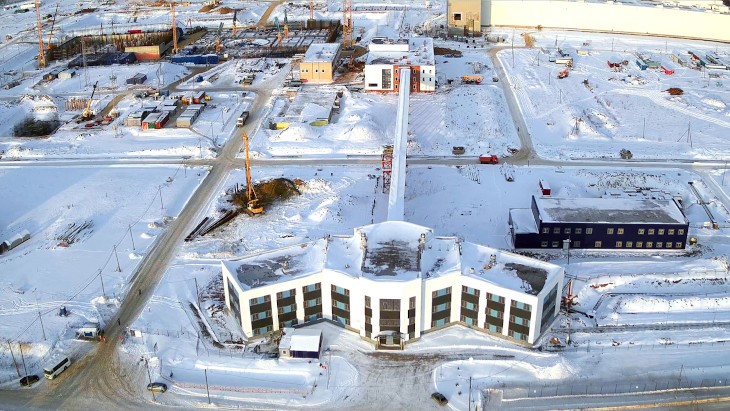PDEC will be centred around a BREST-OD-300 lead-cooled fast reactor which will generate around 300 MWe. Used fuel discharged from the reactor will be reprocessed to retrieve fuel materials that will be fabricated into new fuel on-site, forming a closed fuel cycle that produces a minimal amount of waste.
"The nuclear power industry's resource base will practically become inexhaustible thanks to the infinite reprocessing of nuclear fuel," Rosatom director general Alexey Likhachov said when construction began in June last year.
PDEC is part of of Rosatom’s Proryv, or Breakthough, project that aims to close the nuclear fuel cycle.
Today, Rosatom fuel subsidiary TVEL announced its Siberian Chemical Combine, where PDEC is sited, signed a contract for the design of the reprocessing module with another Rosatom subsidiary, Atomenergoproekt.
The contract will see Atomenergoproekt develop the reprocessing module design before submitting it to the independent engineering assessor Glavgosexpertiza for feedback. The company will then complete the detailed design to the point that Rosatom can apply to regulators for a construction licence in 2024. Atomenergoproekt will also make some of the equipment that the reprocessing module will need.
The reprocessing will be the second of PDEC's modules to begin operation in 2024. Rosatom schedules say the fresh fuel fabrication plant will come first, in 2023, and the reactor will come last, in 2026.
The BREST-OD-300 unit will run on mixed uranium-plutonium nitride fuel, Rosatom has previously stated. The reprocessing technique will be based on a combined pyrochemical-hydrometallurgical technology, TVEL said.








_94566.jpeg)






